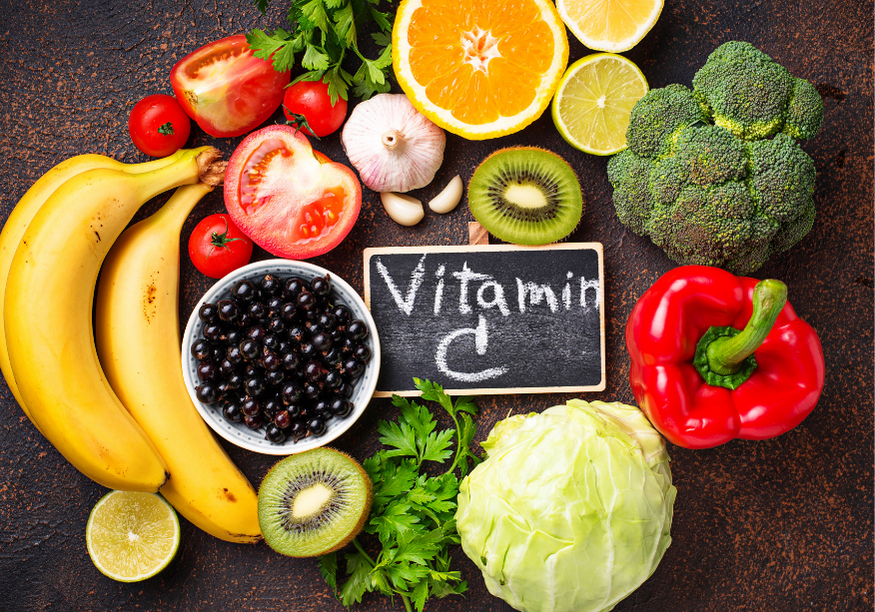Winter can be tough on our skin. With dry, cold air and harsh winds, our skin can become dehydrated, flaky, and irritated. That’s why it’s important to give your skin some extra love and attention during the winter months. One way to do that is by incorporating vitamin C into your skincare routine. In this blog post, we’ll explore the benefits of vitamin C for skin health, and how it can help you maintain healthy, radiant skin throughout the winter.
What is Vitamin C and How Does it Benefit Your Skin?

Vitamin C is a powerful antioxidant that helps to protect the skin from free radical damage caused by UV exposure and environmental pollution. During the winter months, when our skin is more susceptible to damage, vitamin C can be particularly beneficial. Here are some of the ways that vitamin C benefits your skin:
- Promotes collagen production: Collagen is essential for keeping our skin firm and supple. Vitamin C plays a key role in collagen synthesis, which is why it’s important to maintain healthy levels of vitamin C in your diet or through topical products.
- Brightens the skin: Vitamin C can help to reduce the appearance of dark spots and hyperpigmentation, giving your skin a brighter, more even tone.
- Fights free radicals: Free radicals can damage your skin cells and accelerate the aging process. Vitamin C helps to neutralize free radicals and prevent damage.
- Hydrates and nourishes: Vitamin C is also known for its hydrating and nourishing properties, which can help to soothe and calm dry, irritated skin.
How to Incorporate Vitamin C into Your Winter Skincare Routine:
Now that we know why vitamin C is so important for winter skincare, let’s explore how to incorporate it into your routine. Here are some tips:
- Choose a vitamin C serum: A vitamin C serum is a great way to get a concentrated dose of vitamin C into your skin. Look for serums that contain at least 10% vitamin C for maximum benefits.
- Use a moisturizer with vitamin C: If you prefer a moisturizer to a serum, look for one that contains vitamin C as well. This will help to hydrate your skin while also delivering the benefits of vitamin C.
- Look for other vitamin C-rich products: In addition to serums and moisturizers, there are many other skincare products that contain vitamin C, such as face masks and facial oils. Experiment with different products to see what works best for your skin.
- Don’t forget about your diet: In addition to topical products, it’s important to maintain healthy levels of vitamin C in your diet as well. Eat plenty of fruits and vegetables that are high in vitamin C, such as oranges, strawberries, and bell peppers.
Tips for Getting the Most Out of Your Vitamin C Skincare Products
Now that you’ve incorporated vitamin C into your winter skincare routine, here are some tips for getting the most out of your products:
- Use a sunscreen: Vitamin C can make your skin more sensitive to the sun, so it’s important to wear a sunscreen during the day to protect your skin.
- Apply your products in the right order: To get the most out of your vitamin C products, apply them in the right order. Start with your cleanser, then apply your vitamin C serum or moisturizer, followed by any other products you
Foods Rich in Vitamin C for Winter Skin Care
Including foods rich in Vitamin C in your diet can provide your skin with the nutrients it needs to combat the harsh winter weather. Here are some delicious options to try:

- Citrus Fruits: Oranges, lemons, grapefruits, and tangerines are all excellent sources of Vitamin C. Snack on them alone or add them to your morning smoothie.
- Bell Peppers: Bell peppers are not only a great source of Vitamin C, but also Vitamin E, another nutrient that can help protect your skin. Add them to your stir-fry or salad for a healthy and colorful meal.
- Kiwi: Kiwi is a small but mighty fruit that is packed with Vitamin C, antioxidants, and other nutrients that can help improve your skin’s appearance. Slice it up and enjoy it as a snack or add it to your yogurt.
- Broccoli: This vegetable is not only rich in Vitamin C, but also Vitamin A, which can help keep your skin healthy and supple. Roast it in the oven or add it to your soup for a warming and nutritious meal.
Other fruits and vegetables rich in Vitamin C include guava, papaya, strawberries, Brussels sprouts, and kale. By incorporating these foods into your diet, you can help protect your skin from winter damage and keep it looking healthy and radiant.
Taking care of your skin during the winter months is crucial, and incorporating Vitamin C into your routine can make a big difference. Whether you choose to use a Vitamin C serum, moisturizer, or eat foods rich in Vitamin C, your skin will thank you. By following the tips and advice in this article, you can keep your skin healthy and radiant all winter long.



GIPHY App Key not set. Please check settings